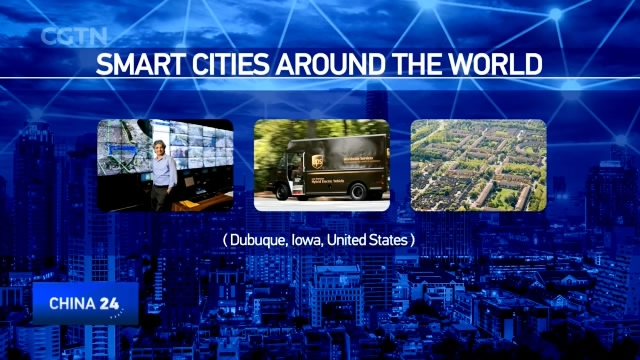
20:52, 22-Apr-2018
Urban Intelligence: Dissecting smart cities around the world
01:44

New technologies are being deployed to establish what are known as smart cities. These are urban areas that use information and communication technology to optimize the efficiency of city operations and services, and connect with residents.
There are currently more than a thousand cities around the world that call themselves smart. Half of them are in China. Europe has the second most smart cities at 90.
In China, one of the best examples is the city of Hangzhou in east China's Zhejiang Province. A British market research firm recently rated Hangzhou as one of the top 20 smart cities in the world. Mobile payments are available on all forms of public transport such as buses, subways, and high-speed trains.
The use of digital medical treatments also helps a lot of people save time. After registering on a mobile app, Hangzhou's residents get access to doctors without having to pay in advance. This covers 98 percent of the city's people. If you don't want to go to a hospital, you can seek a doctor's advice through a cloud platform. Big data gives health professionals easy access to a patient's medical records.
Around the world, Amsterdam uses intelligent technologies in sustainable development, allowing the city to reduce carbon emissions and energy consumption. Dubuque in America is the first smart city in the world. The city uses the internet of things in many areas. Data collected from citizens, devices, and assets allow city officials to interact directly with both the community and city infrastructure, and to monitor what is happening in the city and how the city is evolving.

SITEMAP
Copyright © 2018 CGTN. Beijing ICP prepared NO.16065310-3
Copyright © 2018 CGTN. Beijing ICP prepared NO.16065310-3